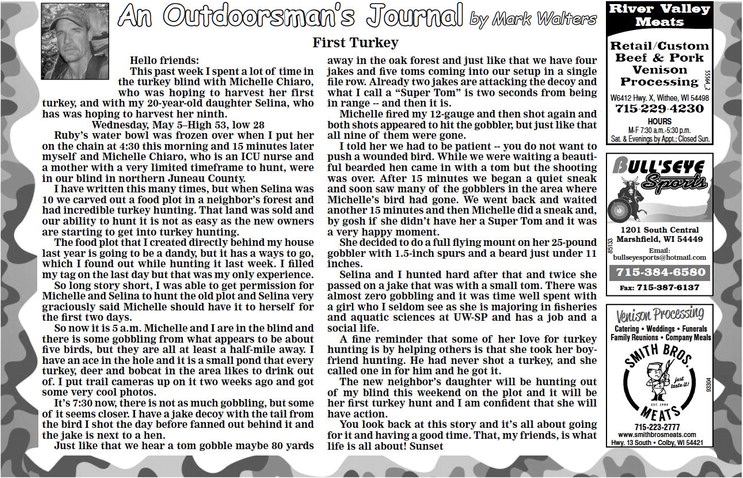An Outdoorsman‛s Journal


First Turkey
Hello friends: This past week I spent a lot of time in the turkey blind with Michelle Chiaro, who was hoping to harvest her first tu...


First Turkey
Hello friends: This past week I spent a lot of time in the turkey blind with Michelle Chiaro, who was hoping to harvest her first tu...